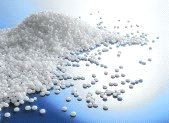Business News
Progress through sustainable adhesive solutions

Monday 27. September 2010 - In package manufacturing, the use of sustainable adhesive technologies is a key factor for success. They make an important contribution to improving the eco-efficiency of production processes, while also offering real added value in terms of economy. With its well-known adhesive brands Technomelt and Adhesin, Henkel will be at FackPack 2010, presenting adhesive solutions for the packaging industry that combine first-class performance with responsibility toward people and the environment.
Modern packages would be unimaginable without the use of adhesives. When developing new adhesive technologies, the improvement of eco-performance plays an especially important role. As the leading global supplier of industrial adhesives, Henkel will be presenting an extensive portfolio of products for the packaging industry at FackPack 2010 in Hall 6, Stand 439.
Low energy consumption with Technomelt Supra Cool 130
One example is the new hotmelt Technomelt Supra Cool 130 for closing cartons and folding boxes. Henkel has, for the first time, succeeded in reducing the application temperatures for a Supra hotmelt by an average of 40 °C, down to 130 °C. This enables manufacturers to save up to 40 percent on energy costs. A further benefit of this almost odorless adhesive is that, in addition to exceptional bonding strength, it also features great consistency in terms of its viscosity and colorfastness. Compared to conventional hotmelts, it is thermally much more stable and flows more evenly without stringing or cracking. Moreover, its self-cleaning properties ensure immaculate processability. Using the new adhesive avoids the problem of clogged modules and blocked nozzles, which reduces machine and equipment attrition and minimizes cleaning time. And this leads to yet another major plus: the outlay for spare parts is similarly reduced. Outages and set-up times can likewise be significantly decreased, with production restarting at an earlier point in the proceedings. The new adhesives technology is suitable for a range of applications considerably wider than that of conventional EVA hotmelts, and it can also be readily used on a large number of different substrates and packaging materials.
Sustainable consumer protection with Adhesin A78
In addition, Henkel will be presenting its Adhesin A 78 series, an entirely new generation of dispersion adhesives that contain no plasticizers. This completely avoids the problem of migration of potentially health-hazardous substances which have been returned to the production process via recycling routes. When old packages are recycled, any plasticizers contained in the packaging adhesives enter the paper cycle and can accumulate in the paper fibers. The paper mills currently have no way of extracting the plasticizers. Since the share of recycled fibers used in paper production is constantly rising, the share of entrained plasticizers is also growing. Especially in the case of food packed in cartons, there is a risk that direct contact with food could result in a health hazard for consumers.
With sustainable consumer protection in mind, Henkel therefore deliberately rejected the use of plasticizers when developing the Adhesin A 78 series. This was a huge challenge, because the missing additives had to be replaced by suitable alternatives in order to assure the same high level of quality. The goal was achieved with a new copolymer system whose formulation largely consists of renewable raw materials. Technically, the plasticizer-free adhesives meet all the usual industrial requirements for bonding folding boxes, corrugated board boxes, bags and pouches, envelopes and paper packages, including large-area lamination. Product variants are available for different application systems, such as rollers and nozzles. Adhesin A 78 products are also highly economical.
